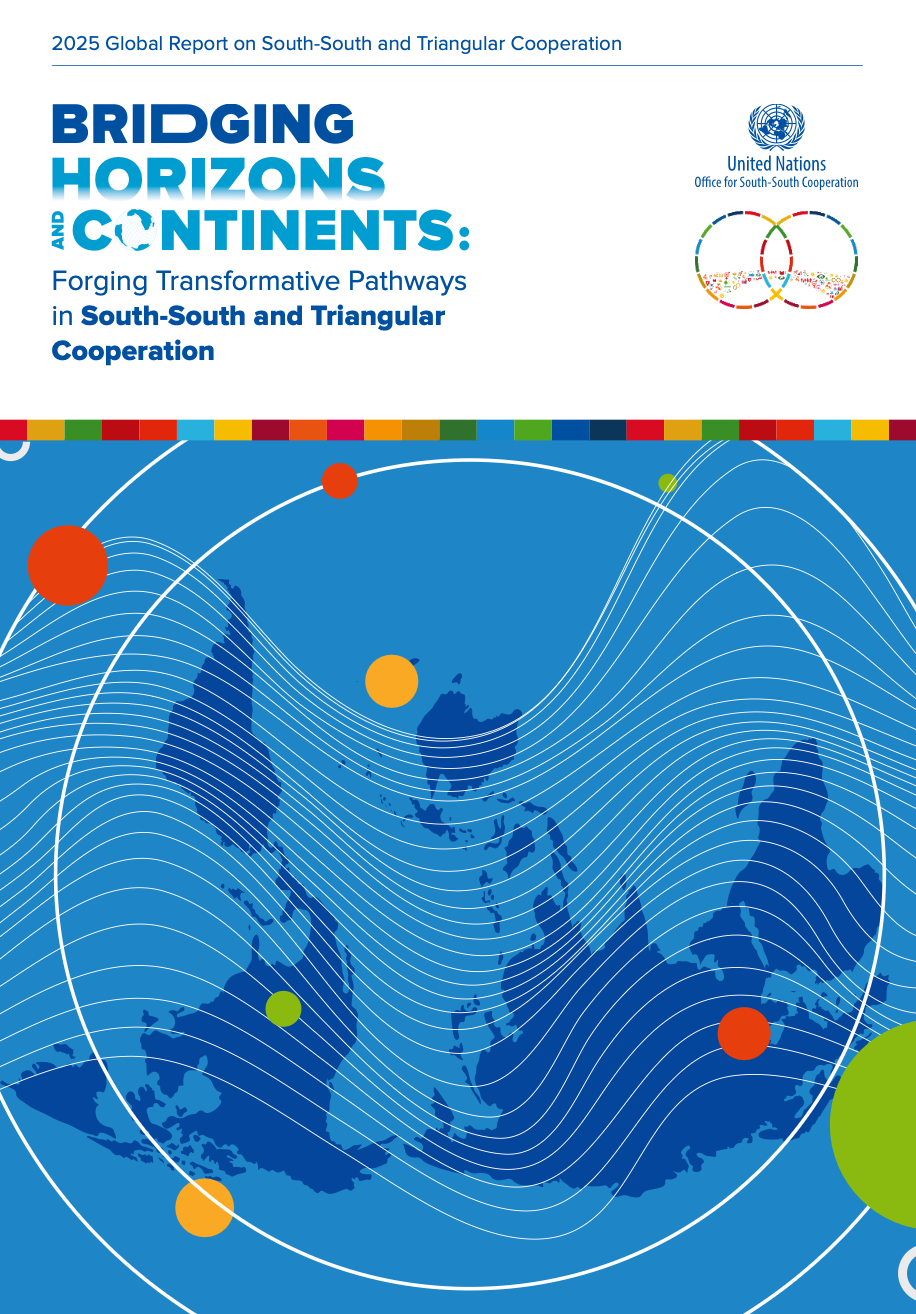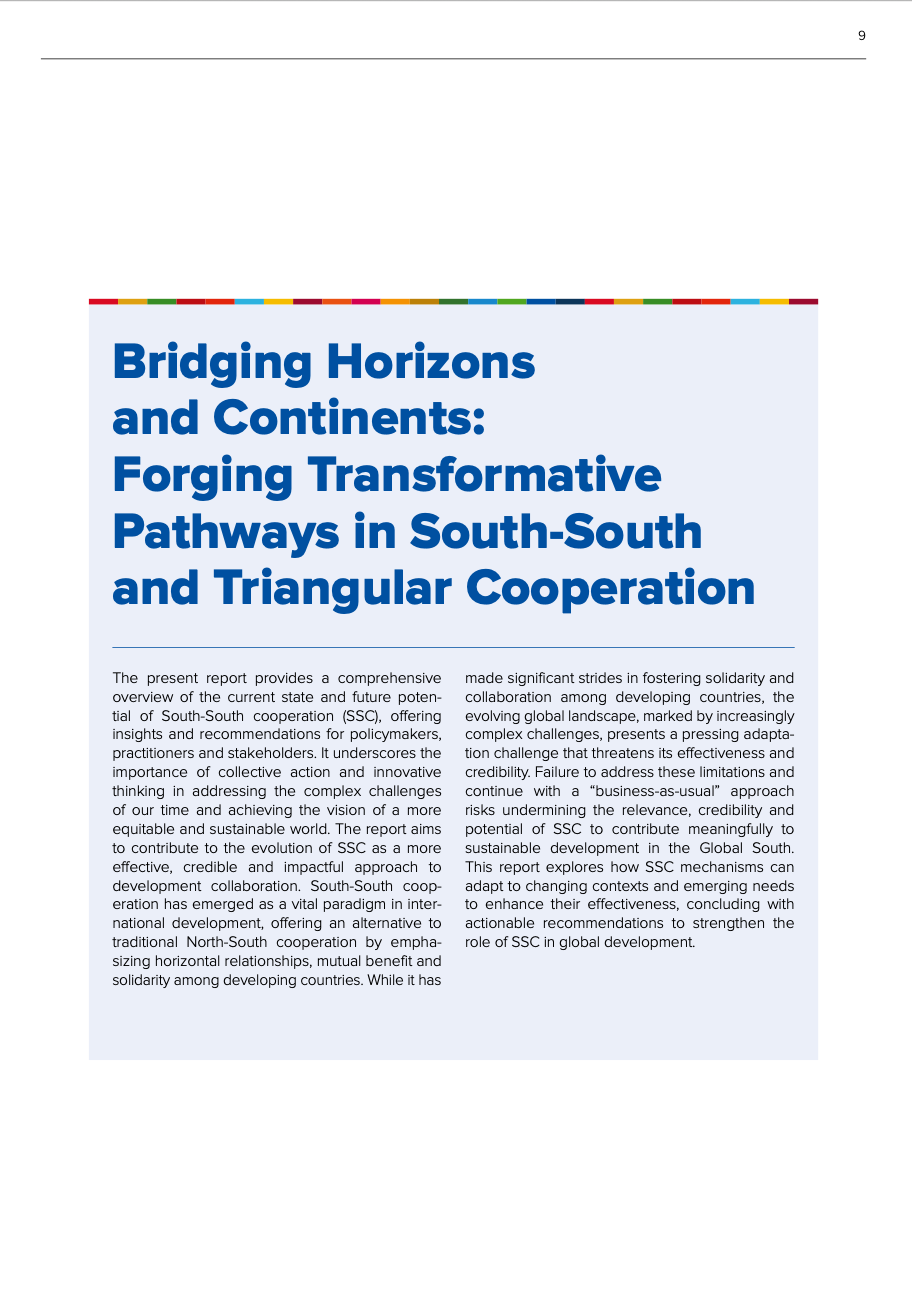South-South and Triangular Cooperation
South-South Cooperation
South-South cooperation is a common endeavour of peoples and countries of the South, born out of shared experiences and sympathies, based on their common objectives and solidarity, and guided by, inter alia, the principles of respect for national sovereignty and ownership, free from any conditionalities.
Operationally, South-South cooperation for development is a process whereby two or more developing countries pursue their individual and/or shared national capacity development objectives through exchanges of knowledge, skills, resources and technical know-how and through regional and interregional collective actions, including partnerships involving Governments, regional organizations, civil society, academia and the private sector, for their individual and/or mutual benefit within and across regions. South-South cooperation is not a substitute for, but rather a complement to, North-South cooperation. This definition is an attempt to present a cohesive meaning of South-South cooperation within the United Nations system. (SSC/19/3)
Triangular Cooperation
Triangular cooperation involves Southern-driven partnerships between two or more developing countries supported by a developed country(ies)/or multilateral organization(s) to implement development cooperation programmes and projects. Evidence shows that in many instances, Southern partners in development cooperation require the financial and technical support and expertise of multilateral and/or developed-country partners in the course of assisting other developing countries (see TCDC/9/3).
Northern partners also benefit by being able to take advantage of increased institutional capacity in the South and to increase the impact of their aid disbursements by leveraging the resources of multiple Southern partners. Developed countries have increasingly expressed strong support for this approach to development and a willingness to share their experience and lessons learned as long as the triangular cooperation process is led and owned by Southern actors in order to achieve development results. (SSC/19/3)
Objectives of South-South Collaboration
The basic objectives of South-South collaboration, according to the Buenos Aires Plan of Action (BAPA) for Promoting and Implementing Technical Cooperation among Developing Countries endorsed by the General Assembly in 1978 (resolution 33/134), are to :
Promoting National Self-Reliance
Enhancing creative capacity for homegrown development solutions.
Fostering Collective Self-Reliance
Sharing experiences, resources, and complementary capacities among developing countries.
Strengthening Joint Problem-Solving
Building capacity to identify, analyze, and strategize on key development issues..
Enhancing Development Cooperation Effectiveness
Pooling resources to improve the quality and impact of international cooperation.
Building Technological Capacities
Developing and adapting technology and skills to meet specific national needs.
Improving Knowledge and Communication Networks
Increasing awareness, access to knowledge, and creation of new solutions.
Addressing Vulnerable Countries’ Needs
Focusing on least developed, landlocked, small island states, and disaster-affected countries.
Expanding Participation in Global Development
Strengthening developing countries’ role in international economic activities and cooperation.
ISTIC as the Platform for South-South Cooperation
As a UNESCO center working on STI among Southern countries, ISTIC have the primary mission of promoting, documenting, and disseminating knowledge, practices, and innovations arising from South-South and triangular partnerships.
Discover the Global Report on South-South and Triangular Cooperation 2025
Explore South-South and Triangular Cooperation and its current challenges through the latest report from the United Nations Office for South-South Cooperation.
Download the report


